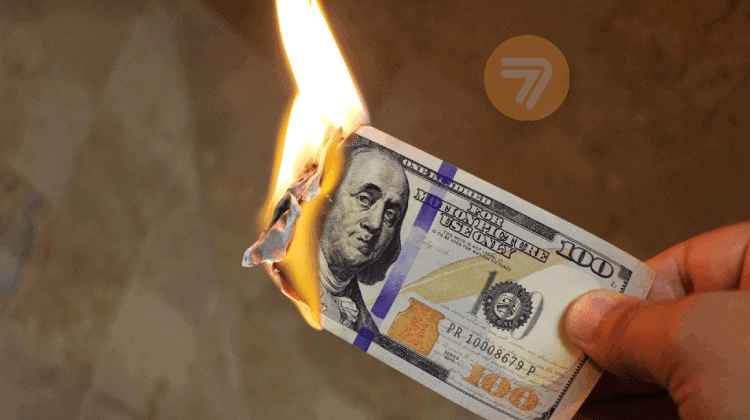France Puts Plans to Legalize Online Casinos on Hold
11 Nov 2024
The tables at the Paris Elysees Club in the French capital. Image: the club’s website.
Curbing Offshore Gambling would Help the Fisc and Protect Customers
France, the country that introduced the world to blackjack and roulette and actively contributed to creating the very concept of casino gaming, recently announced plans to legalize online gambling platforms.
The move intended to protect consumers by limiting their exposure to unregulated offshore gambling sites and to help fill some fiscal gaps.
The motion, which proposed an amendment to the French General Tax Code, was submitted on the 19th of October with the Draft Finance Bill for 2025. The amendment defined tax rates and would allow the government to open and regulate the online casino games market via an ordinance.
However, the idea faced fierce opposition from various groups, including local brick-and-mortar casinos, towns, and mental health professionals.
Thus, just a week after proposing to allow online casinos, the government had to put the plans on hold. On the 27th of October, Budget Minister Laurent Saint-Martin announced on the radio that the government has withdrawn amendment.
“We need to sit down at the table with all ministers involved,” the Minister said. He agreed that more consultations with all relevant stakeholders from the industry and the mental health professionals community are necessary.
“We must proceed cautiously to avoid impacting existing stakeholders, particularly physical casinos,” Saint-Martin added.
In the end, the door to allowing online casinos in France remained open for the future, but the details are yet to emerge. “We’ll see,” the Budget Minister said.
Illegal Online Casinos in France Generated Up To €1.5 Bn in GGR
Besides physical casinos, French legislation allows online betting on sports and horse races, as well as poker. The operator La Française des Jeux (FDJ) holds the national lottery monopoly.
However, playing casino games online is against the law. The Summary Statement of the withdrawn amendment pointed out that France and Cyprus were the only EU member states that banned such games.
The Statement observed that the ban proliferated the illegal online gambling market in France. To provide data, the government used a study commissioned by the French National Gambling Authority (ANJ) and conducted by PricewaterhouseCoopers (PwC) in 2023.
Estimates showed that the illegal online gambling market had grown to between €748 million (≈ ₹6805 crore) and €1.5 billion (≈ ₹13,645 crore) per year.
This equals roughly 5% to 11% of France’s gambling market’s total size. In 2022, the sector attracted €13 billion (≈ ₹1.18 lakh crore) in revenues, including €3 billion (≈ ₹27,290 crore) from online activities.
Further, the study showed that online casino games like roulette, baccarat, and slots accounted for 50% of the illegal supply.
Alarmingly, 79% of illegal Gross Gaming Revenues generated on French territory came from players with risky gambling behavior. For comparison, legal market operator Kindred Group reported 3.3% revenues from high-risk gamblers.
The Inherent Risks of Online Gambling Bans
The French government of Prime Minister Michel Barnier estimated that half of players of online money games were not aware of these games’ illegal status.
Despite this, the online casino ban in the country exposed substantial groups of customers to a number of risks. Unregulated games may allow cheating, winnings may go unpaid, there is no oversight on what happens. Minor citizens have no protection and everyone’s personal data is in danger.
Besides aligning its laws on online casino gambling with the other European countries, the French government wanted “to limit the impact on the public health of consumers of online games.”
The other motivations listed in the amendment’s Summary Statement included “to control this ever-growing range of games and to try to dry up the illegal supply.”
The French are having the same troubles like Indian authorities, who have been struggling with blocking non-complying URLs, naming it a “continuous exercise.”
In March 2022, ANJ received powers to block sites without a court order. Up to now, 506 administrative blocking orders have banned a total of 2365 URLs. However, these efforts go in vain, as illegal operators are quick to open mirror sites.
The Statement further noted the “specific characteristics, particularly in terms of addiction” of online casino games. Due to this, authorization of such platforms must happen through “specific regulations” elaborated “in conjunction with the National Gaming Authority and all stakeholders concerned.”
Thus, the government’s amendment proposed online casino regulation to happen via an executive order issued by the cabinet.
Could Gambling Legalization Solve the Mounting Deficit?
The financial aspect of the proposed General Tax Code amendment is also not to be underestimated.
“Those that exist, which are sometimes operating illegally, must either be closed or be regulated or have to contribute,” Finance Minister Antoine Armand said on TV speaking about the rapid spread of offshore gambling platforms of the last few years.
The amendment proposed the levy on online casino games to be aligned with the tax on lottery. This includes 27.8% tax on the Gross Gaming Revenue (GGR) plus another 27.8% allocation for the 2025 social security scheme.
Thus, the effective tax burden would come at 55.6%. Initial prognosis expected around €1 billion (≈ ₹9100 crore) proceeds to public coffers from the measure.
Fresh revenues of this magnitude could greatly help the fisc as France ended last year with a 5.5% public deficit.
According to Budget Minister Saint-Martin, this year the figure could even pass the 6% mark. This is a severe violation of the Maastricht criteria for no more than 3% budgetary deficit for the Euro Zone.
Local Industry and Communities Stand Firm

Despite the government’s manifested good intentions, the proposal met fierce and unified opposition. Warnings of “catastrophic consequences” for local businesses and jobs sounded through the media.
Casinos De France, the country’s union of over 200 brick-and-mortar casinos, joined forces with more than 100 mayors. They represented towns that relied heavily on casino-driven tourism.
A petition signed by the mayors urged the government to withdraw the proposed amendment. It would have a severe impact on the local industry, the document warned.
“According to our calculations, opening up online casinos to competition will lead to a drop in the gross gaming revenue of land-based casinos of around 20 to 30%, and the closure of 30% of establishments,” Casinos De France President Grégory Rabuel stated.
“If the online casino market were to open up one day in France, it would have to be done exclusively with the help of physical casinos. It is a question of responsibility, security and the defence of local areas,” Rabuel argued in a tweet on X.
Matter Too Serious to Regulate It in a Hurry
Federation Addiction, a professional organization of addiction treatment workers, also joined the opposition. Online casino games are “among the most addictive forms of gambling.” They should not be regulated in a haste, the body warned.
“Legalising online casinos by a simple amendment is not an acceptable process given the stakes,” Federation Addiction President Catherine Delorme stated.
Online casinos “carry all the hallmarks of addiction: high-frequency betting, rapid results, solitary and continuous risk-taking,” Delorme stressed.
Regulation on online casino games must consider the social and health impacts. Such regulation should also allocate proper resources to addiction prevention and treatment. A transparent public discussion is necessary to achieve these goals, Delorme urged.
The French National Gambling Authority (ANJ) was among the concerned parties pleading for more care.
“This is a complex question insofar as the online casino offer is particularly addictive. Nor is it certain that the opening of this new offer will automatically dry up the illegal offer,” ANJ spokesperson Elsa Trochet-Macé said.
“Finally, we must be careful not to weaken our network of more than 200 land-based casinos,” Trochet-Macé added.
“We are relieved that the government heard our concerns,” Casinos De France’s Grégory Rabuel welcomed the amendment’s withdrawal.
Nevertheless, he stressed that casino professionals “will remain vigilant, ensuring that any future legislative or regulatory developments adhere to a framework of consultation and constructive dialogue.”



